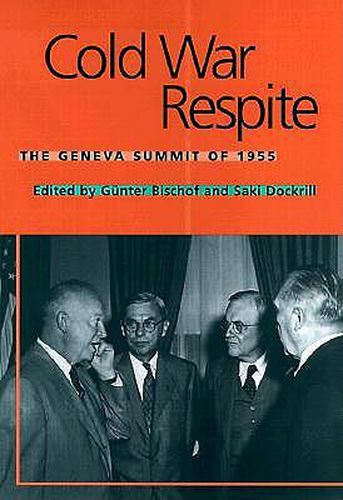Readings Newsletter
Become a Readings Member to make your shopping experience even easier.
Sign in or sign up for free!
You’re not far away from qualifying for FREE standard shipping within Australia
You’ve qualified for FREE standard shipping within Australia
The cart is loading…






At the mid-point of the high Cold War, when most people in North America and Europe thought catastrophic nuclear onslaught was almost inevitable, an unprecedented event took place in Geneva in July 1955. The heads of state from the United States, the Soviet Union, Britain and France came together in an attempt at diplomatic dialogue, primarily over the questions of German unification, European security and nuclear disarmament. Although the Summit ended with no tangible results, its ramifications were extensive, and it provided the world with a brief repose from escalating east-west tension. In this text, 12 scholars writing from several national perspectives investigate how that event came about, why its spirit was so short-lived, and what its subsequent impact was on the development of the Cold War. Making use of declassified archives in the Unites States, France, Britain and Russia, the authors provide research and insights into early Cold War history. As their essays attest, the psychological efforts of the Geneva Summit were of immense significance to the history of international relations and reveal the complexity and dynamism of foreign affairs during the decades following World War II.
$9.00 standard shipping within Australia
FREE standard shipping within Australia for orders over $100.00
Express & International shipping calculated at checkout
At the mid-point of the high Cold War, when most people in North America and Europe thought catastrophic nuclear onslaught was almost inevitable, an unprecedented event took place in Geneva in July 1955. The heads of state from the United States, the Soviet Union, Britain and France came together in an attempt at diplomatic dialogue, primarily over the questions of German unification, European security and nuclear disarmament. Although the Summit ended with no tangible results, its ramifications were extensive, and it provided the world with a brief repose from escalating east-west tension. In this text, 12 scholars writing from several national perspectives investigate how that event came about, why its spirit was so short-lived, and what its subsequent impact was on the development of the Cold War. Making use of declassified archives in the Unites States, France, Britain and Russia, the authors provide research and insights into early Cold War history. As their essays attest, the psychological efforts of the Geneva Summit were of immense significance to the history of international relations and reveal the complexity and dynamism of foreign affairs during the decades following World War II.